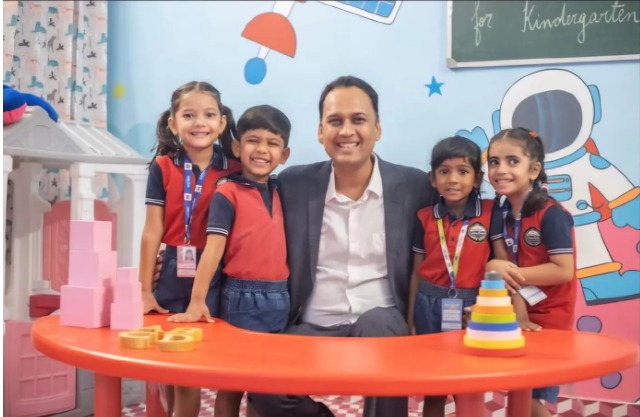From ABCs to EQ: The Shift Toward Holistic Preschool Learning in India

By Pritam Kumar Agrawal, Founder of Hello Kids
For decades, preschool education in India focused predominantly on academic readiness — learning the alphabet, numbers, colors, and shapes. While foundational literacy and numeracy remain important, the definition of “school readiness” is undergoing a significant transformation. Increasingly, educators, parents, and policy makers are embracing a more holistic approach, one that balances cognitive growth with emotional and social development.
This shift is not just a pedagogical trend but a necessary evolution. Today’s children are growing up in a rapidly changing world, one that demands adaptability, resilience, empathy, and communication skills from an early age. Recognizing this, leading early education brands like Hello Kids have pioneered a curriculum that nurtures both IQ (intellectual quotient) and EQ (emotional quotient), fostering well-rounded individuals right from their formative years.
Why EQ Matters in Early Education
Research shows that emotional intelligence is a stronger predictor of long-term success than academic performance alone. Skills such as self-awareness, empathy, managing emotions, and building positive relationships enable children to navigate school life and the world beyond with confidence and compassion. In a classroom setting, children with higher EQ tend to cooperate better, resolve conflicts peacefully, and develop stronger friendships all of which enhance the learning environment.
At Hello Kids, EQ is integrated seamlessly into the day-to-day activities of the preschool experience. Whether it’s through storytelling, group play, mindfulness exercises, or role-playing, children are encouraged to understand their emotions, express themselves, and respect the feelings of others.
A 360-Degree Learning Environment
The holistic learning approach goes beyond traditional books and blackboards. It includes physical development, language acquisition, creativity, and values-based education. Classrooms are now designed as vibrant learning labs that promote exploration, sensory engagement, and curiosity. Activities like music, dance, nature walks, yoga, and free play are no longer considered “extracurricular” they are central to nurturing the whole child.
Importantly, this shift also redefines the teacher’s role from being an instructor to a facilitator of growth. Teachers at Hello Kids undergo regular training in child psychology, emotional well-being, and inclusive education practices to better support every learner’s journey.
Cultural Context and Parental Involvement
India’s diverse cultural backdrop adds a rich layer to this holistic philosophy. Preschool programs now celebrate regional traditions, festivals, and languages, helping children develop a sense of identity and cultural pride from an early age. Additionally, parental involvement is increasingly recognized as a vital part of early education. Regular feedback sessions, parent-child activities, and home extension programs ensure a strong partnership between educators and families.
Looking Ahead
The National Education Policy (NEP) 2020 further reinforces this paradigm shift, emphasizing experiential learning, play-based pedagogy, and emotional development in the foundational years. As India moves toward implementing these reforms, preschools have an exciting opportunity — and responsibility — to be the torchbearers of this change.
At Hello Kids, we believe that preschool is not just preparation for school it’s preparation for life. By nurturing emotional intelligence alongside academics, we aim to shape confident, compassionate, and creative individuals who are ready to thrive in every aspect of the world they inherit.








